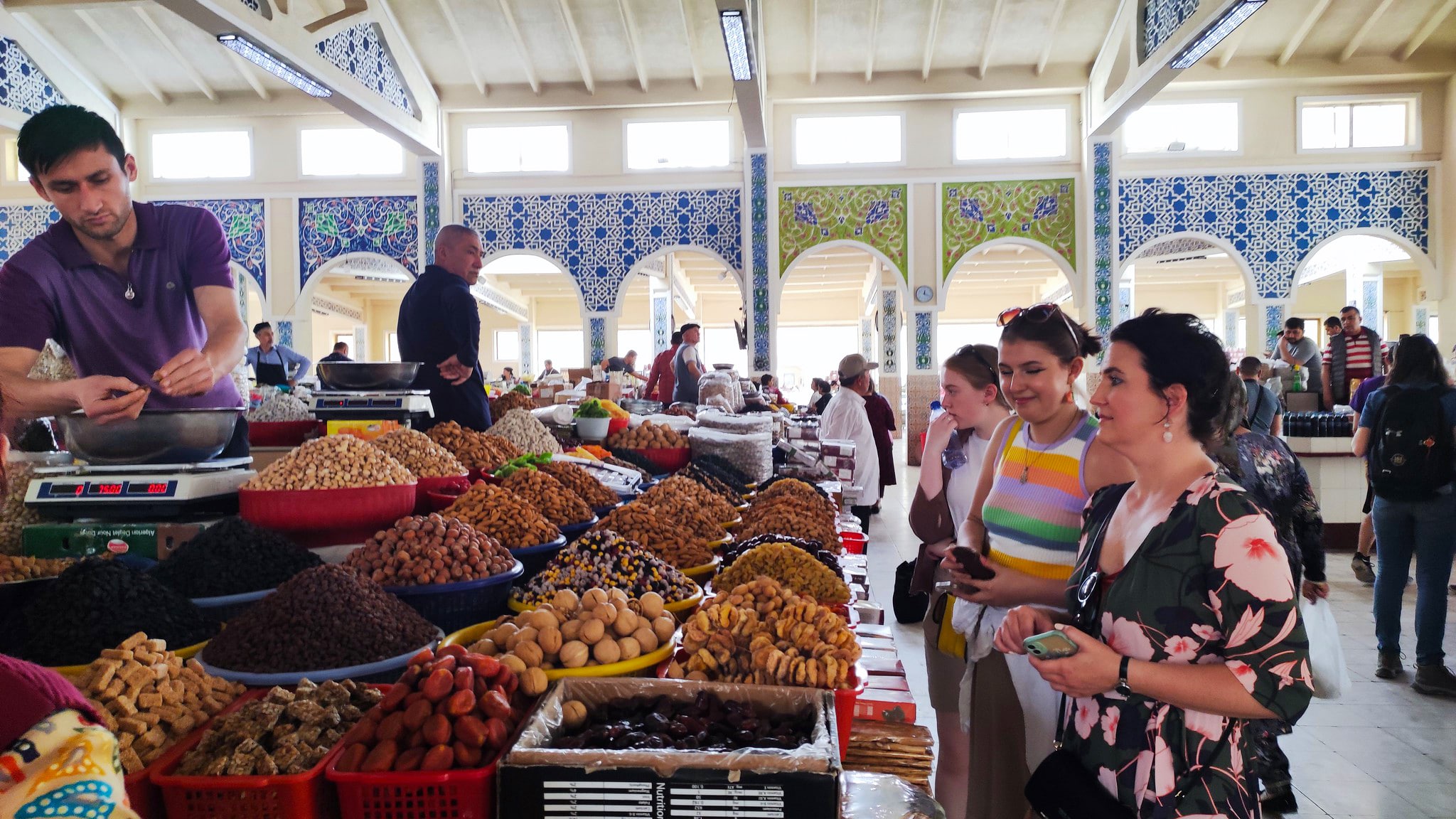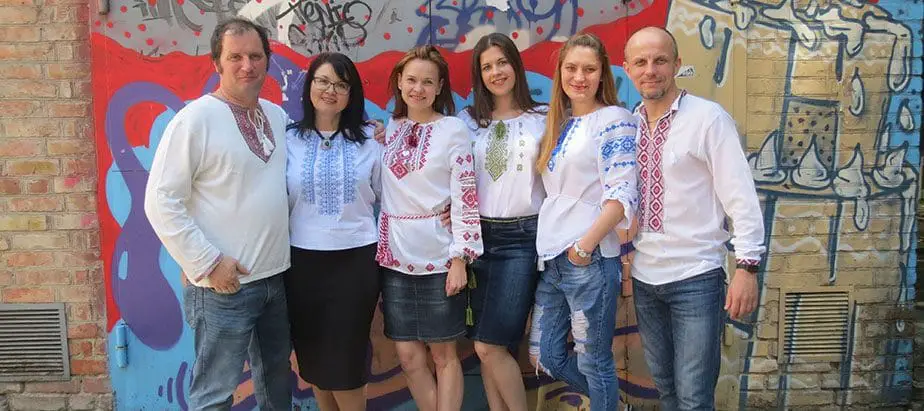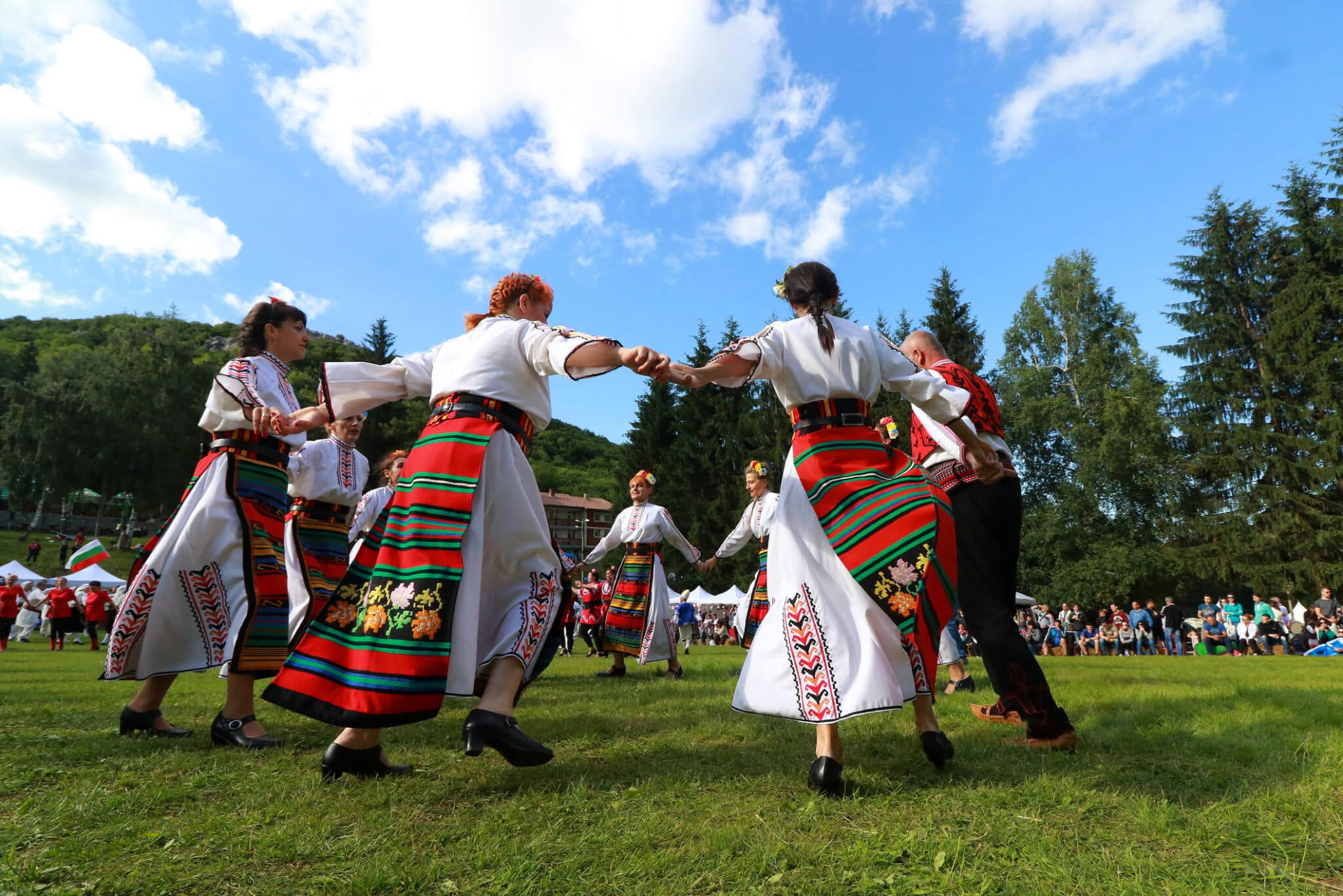The Talking Phrasebook Series presents useful phrases and words in side-by-side translation and with audio files specifically geared to help students work on listening skills and pronunciation. Below, you will find several useful phrases and words. To the left is the English and to the far right is the Kazakh translation.
In the center column for each row is a play button. The recorded file will feature first English, then the Kazakh in three versions: one slow, one with each syllable broken out, and a last version that will be spoken as it might be overheard in a conversation between native speakers.
10 Facts About Kazakh (Qazaq)
Status: Kazakh is a Turkic language of the Kipchak family. It is closely related to, and largely mutually intelligible with, Kyrgyz. It is more distantly related to other Turkic languages spread from Turkey to the far reaches of Siberia.
Kazakh and Qazaq: Kazakh was originally written in Arabic script. The Russians changed that to Cyrillic. Independent Kazakhstan decreed in 2017 that it would switch to a Latin-based alphabet that would, for the first time, be designed to hold truer to the language’s original Turkic roots. By this newly derived alphabet, “Kazakh” (derived via Russian) should now be written in English as “Qazaq” (derived directly from Kazakh). However, the decree has seen very slow implementation. Even Kazakhstan’s official government sites still write “Kazakhstan” rather than “Qazaqstan” and write their Kazakh-language versions in the older Cyrillic alphabet. In fact, most of the country still uses Cyrilic, although the new alphabet is now slowly being adopted by some schools. The spelling “Qazaq” has been adopted mostly by companies, movements, and individuals seeking to mark themselves as modern and/or progressive – for instance: Qazaq.ai, Qazaq Green Fest, and the youth-focused Qazaq Culture Project. As “Kazakh” remains the most widespread and official version of the name, this page and this site continue to use it as standard. Eventually, the country may fully convert to the new spelling and alphabet, but the change will likely take place over many more years.
Speakers: Today, Kazakh has an estimated 17 million speakers. About 14 million of those live in Kazakhstan, where ethnic Kazakhs make up about 71% of the population. The largest Kazakh diasporas currently live in China (1.6 million), Uzbekistan (821,000) Russia (591,000) and Mongolia (121,000). Smaller but significant populations live in Kyrgyzstan, Turkey, the US, and Iran.
Bilingualism: Many Kazakhs are bilingual. Despite Russians making up only about 15% of the population, half of Kazakh schools offer instruction either fully or partly in Russian. Nearly all Kazakh public schools teach Russian, Kazakh, and English and most educated Kazakhs can speak at least two languages; most commonly, these are Kazakh and Russian although English is gaining in popularity while Russian is falling.
Foreign Influence: Kazakh had been heavily influenced, especially in vocabulary, by Arabic, Persian, Mongolian, and Russian. Many words related to religion and ethics have predictably come from Arabic: адал (honest); ақиқат (truth); сабыр (patience). Persian has supplied many related to trade and governance: сауда (commerce); қала (city); пошта (postal service). Russian has also had heavy influence. However, since independence, there has been an active, state-supported movement to replace Russian words with native Kazakh words.
Complex cases: Like most Turkic languages, Kazakh has a complex system of cases. Kazakh specifically has seven: nominative, genitive, dative, accusative, locative, ablative, and instrumental.
Gender: Kazakh has no grammatical gender. The Kazakh pronoun “oл” can mean “he,” “she,” or “it.”
Multiple Negatives: In Kazakh, a sentence can be made negative using one of three participles: емес, жоқ, or болмайды, which all function much as the English “not.” For example, бұл кітап (this is a book) and бұл кітап емес (This is not a book). However, when negating a verb, it is most common to use an additional suffix in the verb conjugation. For example, in the sentence “түсінемін” (I understand), “түсіну” means “to understand” and the suffix “-мін” indicates the first person singular. To negate the sentence, we add another suffix before –мін. “Түсінбеймін” means “I don’t understand” with the additional suffix “-бей” meaning “not.” Other negation suffixes include –ма, –ме, –ба, –бе, –па, –пе, used based on the verb’s ending.
Respectful Pronouns: Kazakh has eight personal pronouns – including four versions of “you,” to be used based on formality and number. There are informal “you” pronouns: сен (singular) and сендер (plural). There are also formal “you” pronouns: сіз (singular) and сіздер (plural). Each of these have their own conjugative forms for related verbs as well.
Dialects: Kazakh differs slightly based on where it is spoken. These differences are mostly confined to pronunciation and vocabulary and are attributed to varying influences from other languages and cultures. For instance, in northern Kazakhstan, which borders Russia and where many of Kazakhstan’s Russian population is concentrated, more Russian influence remains. In the south, meanwhile, more influence from other Turkic languages such as Uzbek, Naimen, and Uyghur can be discerned.
Unique Characters and Sounds in Kazakh
Kazakh pronunciation can be difficult for English speakers. Although its new Latin alphabet may make it look quite approachable, many of the letters adopted will make unexpected sounds for English speakers. There are also subtleties to the pronunciation that are challenging for English speakers to copy as we do have the same subtleties in our own language.
The “Q” in the word “Qazaq,” (denoted by the accented “Қ” in Cyrillic) is a good example. It makes the “q” sound as in “quack,” but without the “u” sound that always follows in English. The jaw is kept mostly closed rather than partly open, the throat is initially tight, and more of the sound is made at the back of the throat. This gives the letter an additional explosive and almost fricative sound that is not otherwise found in the English or Russian “k” sounds.
“Ğ” in Kazakh is similar (written as “Ғ” in Cyrillic). It is often described as like the “g” in “ing” – but it must be pronounced without any hint of the “i” or the “n” in front. It is a hard “g” sound, made with the tongue moving back. Here too, more sound is made at the back of the throat and with a distinct fricative element not found in English. It can perhaps be understood as something between the Russian “г” and “х”.
“Ö” is another surprise. It sounds something like “woeh” – almost like the sound English speakers say when they pronounce the sound of “w,” but with the tongue sliding backward and more of the sound produced, again, in the throat.
“Ì,” topped with an accent mark, not a dot, is a short “i” sound like that found in the word “illness” – but pronounced from deeper in the throat in Kazakh.
“J” might also be a surprise, as it’s pronounced the same as the Russian “ж” – or “zh.” Much like the English letter, but with the first “d” sound dropped.
“Ç” and “Ş” are easier. Both are the equivalents of adding an “h” to their closest English-language equivalents. So, they make the “ch” and “sh” sounds, respectively.
“Ñ” should be familiar if you’ve studied Spanish – it makes the same “ny” sound found in “mañana.”
These are just a few of the special characters and sounds that you will encounter in Kazakh. In general, keep in mind that this language harnesses much more of the language potential of the throat than an English speaker might be used to.
Survival Basics
| Hello! | Salem! (Cәлем!) *informal, conversational – to greet a friend |
|
| Hello! | Salemetsyz be! (Сәлеметсіз бе!) *more formal – to greet a teacher/passer-by |
|
| Yes | Ya (Иә) |
|
| No | Zhok (Жоқ) |
|
| Good morning! | Kayrly tun! (Қайырлы тұн!) |
|
| Good afternoon! | Kayrly k’un! (Қайырлы күн!) |
|
| Good evening! | Kayrly kesh! (Қайырлы кеш!) |
|
| What’s up? | Kalay zhagday? (Қалай жағдай?) |
|
| How are you? | Kalaysyn? (sing./informal)
(Қалайсың?) |
|
| How are you? | Kalaysyz? (formal)
Қалайсыз?) |
|
| How are you? | Zhagdaiynyz kalay? (pl./formal) (Жағдайыңыз қалай?) |
|
| Good, thanks, and you? | Bary zhaksy, rakhment, sen she? (sing./informal) (Бәрі жақсы, рахмет, сен ше?) |
|
| Good bye! | Sau bol! (Сау бол!) *informal, conversational |
|
| Good bye! | Sau bolynyz! (Сау болыңыз!) *more formal |
|
| See you later! | Kezdeskenshe! (Кездескенше!) |
|
| Sorry! | Keshiriniz! (Кешіріңіз!) |
|
| Open/closed | Ashyk/zhabyk (Ашық/жабық) |
|
| Pull/push | ‘ozine karay/esikti iteriniz (өзіне қарай/есікті итеріңіз) *when referring to a door |
|
| Small/big | Kishkentai/biyk (Кішкентай/биік) |
|
| Do you speak English? | Siz agylshyn tylinde soileisiz ba? (pl./formal) (Сіз ағылшын тілінде сөйлейсіз ба?) |
|
| I don’t speak English. | Men agylshyn tilinde soylemeymin. (Мен ағылшын тілінде сөйлемейм.) |
|
| I only speak a little Kazakh. | Men kazaksha kishkene bilemin. (Мен қазақша кішкене білемін.) |
|
| I understand | Tusinemin. (Түсінемін). |
|
| I don’t understand. | Tusinbeymin. (Түсінбеймін.) |
|
| Thank you! | Rahment! (Рахмет!)/ |
|
| Thank you very much! | Rahmet k’op – k’op!
(Рахмет көп-көп!) |
|
| Very well, thanks! | ‘Ote keremet rahmet! (Өте керемет рахмет!) |
|
| Well/Good | Zhaksy (adv./adj. f) (Жақсы) |
|
| Poor/Bad | Zhaman (adv./adj. m) (жаман) |
|
| Please | ‘Otinemin (Өтінемін) *When asking for something politely |
|
| You’re welcome! | Arzymaidy! (Арзымайды!) *when responding to “Спасибо!” |
|
| You’re welcome! | Okasy zhok! (Оқасы жоқ!) *More informal |
|
| Excuse me! | Keshyrynyz! (Кешіріңіз!) |
|
| A little | Kishkene (Кішкене) |
|
| Could you speak more slowly? | Otinish, siz bayau soiyley alasyz ba? (Өтініш, сіз баяу сөйлей аласыз ба?) |
|
| Could you repeat, please? | Keshirinyz, kaytalanyzshy! (Кешіріңіз, қайталаңызшы!) |
|
| Could you write that down? | Osyny zhaza alasyz ba? (Осыны жаза аласыз ба?) |
|
| I would like to make an appointment. | Men kabyldauna zhazygym keledi. (Мен қабылдауына жазылғым келеді). |
|
| My bag/wallet/passport was stolen | Menin s’omkem/amiyan/pasport urlandy. (Менің сөмкем/әмиян/паспорт ұрланды). |
|
| I need a doctor! | Magan darigerge karalgym keledi! (Маған дәрігерге қаралғым келеді). |
|
| Call the police! | Politsia zhakyrynyz! (pl./formal) (Полиция шақырыңыз!) |
Introductions in Kazakh
| What is your name? | Senin atyn kim? (sg./informal) (Сенің атын кім?) |
|
| What is your name? | Syzdyn atynyz kim? (pl./formal)
(Сіздің атыңыз кім?) |
|
| Pleased to meet you! | Tanyskanyma kuanyshtymyn! (Танысқаныма құаныштымын! |
|
| I am 25 years old. | Men zhyirma bestemin. (Мен жиырма бестемін.) |
|
| How old are you? | Sen kansha zhastyn? (Сен қанша жастың?) |
|
| Where are you from? | Sen kay zhaktansyn? (Сен қай жақтансын?) |
|
| I am American. | Men Americadanmyn. (Мен Америкаданмын) |
|
| No, I am from Canada. | Zhok, men Kanadadanmyn. (Жоқ, мен Канададанмын) |
|
| She is Australian. | Ol avstraliyalyk. (Ол австралиялық.) |
|
| He is Irish. | On irlandyalyk. (Ол ирландиялық) |
|
| We are from New Zealand. | Biz Zhana Zelandyadan kelgen. (Біз Жаңа Зеландиядан келген.) |
|
| They are from Wales. | Olar Uelsten kelgen. (Олар Уэльстен келген,) |
|
| How do you like Kazakhstan? | Sagan Kazakhstan kalay unaidy? (informal) (Cаған Қазақстан қалай ұнайды?) |
|
| I like Kazakhstan very much. | Magan Kazakhstan ‘ote unaidyi. (Маған Қазақстан өте ұнайды.) |
|
| Have you ever been to Astana? | Siz Astanada boldynyz ba? (pl./formal) (Сіз Астанада болдыңыз ба?) |
|
| I have never been to Almaty before. | Buryn Almatyda bolgan emespin. (m./sing.) (Бұрын Алматыда болған емеспін.) |
|
| This is my second time in Kazakhstan. | Bul menin Kazakhstanga ekinshi ret keluym. (Бұл менің Қазақстанға екінші рет келуім.) |
|
| What do you do? | Syzdyn kasibiniz kanday? (pl./formal) (Сіздің кәсібіңіз қандай?) |
|
| I am a doctor | Men darigermin. (Мен дәрігермін.) |
|
| I am a teacher | Men mugalimmin. (Мен мұғаліммін.) |
|
| I am a businessman | Men biznesmenmin. (Мен бизнесменмін) |
|
| I am a student. | Men studentpin. (Мен студентпін.) |
|
| I am on vacation. | Men demalystamyn. (Мен демалыстамын). *If you’re working and if you’re a student |
|
| I am here on business. | Men munda zhymis ushyn keldim. (Мен мұнда жұмыс үшін келдім). |
|
| I am studying here. | Men osynda okymin.
(Мен осында оқимын) |
Asking Directions
| Where are the toilets? | Daretkhana kayda? (Дәретхана қайда?) |
|
| Men | Erler (daretkhanasy) (Ерлер) |
|
| Women | Ayelder (daretkhanasy) (Әйелдер) |
|
| Where is the nearest bank? | En zhakyn bank kay zherde? (Ең жақын банк қай жерде?) |
|
| Where is the nearest post office? | En zhakyn poshta kay zherde? (Ең жақын пошта қай жерде?) |
|
| Where is the nearest train station? | En zhakyn temir zhol stantsyasy kay zherde? (Ең жақын темір жол станциясы қай жерде?) |
|
| Where can I find Wi-Fi? | Mynda Wi-Fi kay zherde ekenin bilmeisiz be? (Мұнда Wi-Fi қай жерде екенін білмейсіз бе?) |
|
| Do you know the Wi-Fi password? | Siz Wi-Fi kupiya sozin bilmeisiz be? (Сіз Wi-Fi құпия сөзін білмейсіз бе? |
|
| How can I order a taxi? | Taxi kalay tapsyrysu bolady? (Такси қалай тапсырысу болады?) |
|
| Straight ahead! | Tura! (Тура!) |
|
| Take a right! | Onga burylynyz! (Оңға бұрылыңыз!) |
|
| Take a left! | Solga burylynyz! (Солға бұрылыңыз!) |
|
| After the stoplight | Bagdarshamnan keyin (Бағдаршамнан кейін) |
|
| Next/First/Last | Kelesi (Келесі) Birinshi (Бірінші)Songy (Соңғы) |
Shopping
| How much does that cost? | Byl kansha bolady? (Бұл қанша болады?) |
|
| The menu, please! | As ma’zirin berinizshy! (Ас мәзірін беріңізші!) |
|
| I’d like a beer, please | Men syraga tapsyrys bergim keledi. (Мен сыраға тапсырыс бергім келеді.) |
|
| I’d like the bill, please. | Otinemin, shotymdy alamyn ba? (Өтінемін, шотымды аламын ба?) |
|
| Do you accept credit cards? | Siz nesie kartalaryn kabyldaysyz ba? (Сіз несие карталарын қабылдайсыз ба?) |
Counting
| no’l (нөл) |
||
| 1 | bir (бір) |
|
| 2 | eki (екі) |
|
| 3 | ush (үш) |
|
| 4 | to’rt (төрт) |
|
| 5 | bes (бес) |
|
| 6 | alty (алты) |
|
| 7 | zheti (жеті) |
|
| 8 | segiz (сегіз) |
|
| 9 | togyz (тоғыз) |
|
| 10 | on (он) |
|
| 11 | on bir (он бір) |
|
| 12 | on eki (он екі) |
|
| 13 | on ush (он үш) |
|
| 14 | on to’rt (он төрт) |
|
| 15 | on bes (он бес) |
|
| 16 | on alty (он алты) |
|
| 17 | on zheti (он жеті) |
|
| 18 | on segiz (он сегіз) |
|
| 19 | on togyz (он тоғыз) |
|
| 20 | zhyirma (жиырма) |
|
| 21 | zhyirma bir (жиырма бір) |
|
| 22 | zhyirma eki (жиырма екі) |
|
| 30 | otyz (отыз) |
|
| 40 | kyryk (қырық) |
|
| 50 | elu (елу) |
|
| 60 | alpys (алпыс) |
|
| 70 | zhetpis (жетпіс) |
|
| 80 | seksen (сексен) |
|
| 90 | toksan (тоқсан) |
|
| 100 | zhyz (жүз) |
|
| 111 | zhyz on bir (жүз он бір) |
|
| 125 | zhyz zhyirma bes (жүз жиырма бес) |
|
| 200 | eki zhyz (екі жүз) |
|
| 300 | ush zhyz (үш жүз) |
|
| 400 | to’rt zhyz (төрт жүз) |
|
| 500 | bes zhyz (бес жүз) |
|
| 600 | alty zhyz (алты жүз) |
|
| 700 | zheti zhyz (жеті жүз) |
|
| 800 | segiz zhyz (сегіз жүз) |
|
| 900 | togyz zhyz (тоғыз жүз) |
|
| 1000 | myn (мың) |
You’ll Also Love

The Talking Uzbek Phrasebook
The Talking Phrasebook Series presents useful phrases and words in side-by-side translation and with audio files specifically geared to help students work on listening skills and pronunciation. Below, you will find several useful phrases and words. To the left is the English and to the far right is the Uzbek translation. Uzbek is currently transitioning […]

The Talking Ukrainian Phrasebook
Learn Ukrainian with this free phrasebook and its recordings made by native Ukrainian language speakers. For a deeper learning experience, see these online and study abroad experiences from SRAS! Ukrainian is a Slavic language that is primarily spoken in Ukraine, with approximately 45 million speakers worldwide. Its roots lie in Old East Slavic language, which […]

The Talking Polish Phrasebook
The Talking Phrasebook Series presents useful phrases and words in side-by-side translation and with audio files specifically geared to help students work on listening skills and pronunciation. Each entry below, divided by category, features an English word or phrase in the left column and its Polish translation in the right. In the center column for […]

Armenian Talking Phrasebook
The Talking Phrasebook Series presents useful phrases and words in side-by-side translation and with audio files specifically geared to help students work on listening skills and pronunciation. Below, you will find several useful phrases and words. To the left is the English and to the above right is an English transliteration of the Armenian translation. […]

The Talking Bulgarian Phrasebook
The Talking Phrasebook Series presents useful phrases and words in side-by-side translation and with audio files specifically geared to help students work on listening skills and pronunciation. Each entry below, divided by category, features an English word or phrase in the left column and its Bulgarian translation in the right. In the center column for […]





